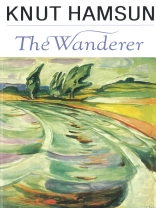The Wanderer consists of two closely related novels, Under the Autumn Star and On Muted Strings, has been acclaimed as one of Hamsun’s greatest works. The narrator, Knut Pedersen (Hamsun’s real name), is a complicated character in search of the simple life, which he hopes to attain by wandering around the Norwegian countryside doing such work as he can find. His quest is continually frustrated, not least by his susceptibility to the wives and daughters of successive employers. In Under the Autumn Star he joins forces, first, with Grindhusen, a man bessed with the faith that ‘something will turn up’; later with Lars Falkenberg, whose dubious talents include the tuning of pianos. Knut and Lars end up as workmen on the estate of a certain Captain Falkenberg (no relation), with whose wife each falls in love. In due course, Knut is laid off and, in futile pursuit of the women he is now helplessly infatuated, eventually fins himself sucked back into the city he had fled. ‘A wanderer plays on nuted strings, ‘ explains Knut, now six years older, ‘when he reaches the age of two score years and ten.’ Among this sequel’s qualities is the poignancy with which it conveys that sense of aging. Both novels show Hamsun at the height of his powers: lyrical and passionate, ironic yet deeply humane, master of one of the most original prose styles in modern literature, brilliantly translated here by Oliver and Gunnvor Stallybrass.
关于作者
Born in 1859, Knut Hamsun published a stunning series of novels in the 1890s: Hunger (1890), Mysteries (1892) and Pan (1894). He was awarded the Nobel Prize for Literature in 1920 for Growth of the Soil.












